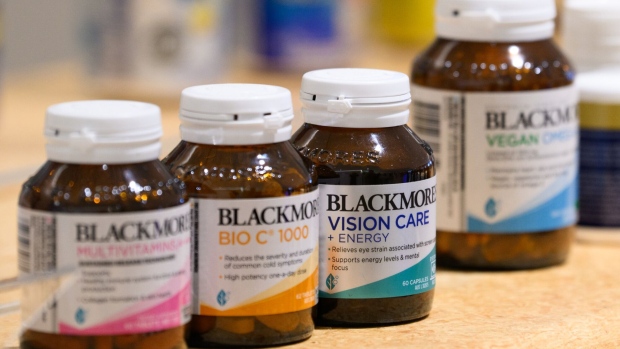Apr 8, 2024
Kirin to Push Deeper Into Health Care After Shoring Up Asia
, Bloomberg News

(Bloomberg) -- Kirin Holdings Co.’s new president will accelerate efforts to boost the brewer’s health care business by shoring up its recent acquisitions and seeking new ones in North America to reach a goal of ¥500 billion ($3.3 billion) in annual sales.
“We are now at a stage where we can really begin driving that growth,” Takeshi Minakata, president and chief operating officer, said in an interview. He was promoted in March after previously leading the health science division.
The brewer wants the health business to make up 20% of total sales as soon as 2030, according to Minakata. While the goal is a high target considering current unit revenue — which stood at ¥103 billion for 2023 — more investments in the sector will help lift revenue, he said. Kirin shares were up 1.7% in early morning trading in Tokyo on Monday.
Kirin has already been ramping up its presence in health care, buying a 33% stake in Fancl Corp., a Japanese cosmetics and dietary supplement company, for ¥129 billion in 2019. Last year, it acquired Australia-based vitamin company Blackmores Ltd. for $1.2 billion. Kirin will grow these acquisitions, while also looking to expand its reach to other areas of the world through more deals, Minakata said.
“Blackmores has strong channels in Australia, Southeast Asia and China, so I think we will be able to solidify our footing in the APAC region,” Minakata. said. “In terms of future growth markets, we’ve been studying North America,” he explained, adding that the weakening yen wouldn’t deter him from buying when the time comes.
Bloomberg Intelligence analyst Ada Li says that Kirin may be able to accelerate its overseas expansion through its Blackmores’ acquisition. However, she remains skeptical of how well the the company’s beverage and health items will work together.
“Kirin can’t sell vitamins at a nightclub that sells beer,” Li said. “The synergies could be somewhat limited as the customers and sales channels are vastly different.”
Kirin has developed teas and yogurts with immunity-boosting ingredients, as well as supplements for health issues such as sleep and visceral fat. But the Japanese company isn’t the only one shifting its focus to such products. Fujifilm Holdings Corp., known for its photography business, also makes nutritional supplements and medical examination devices using its existing film expertise.
For Kirin, it’s also part of a broader plan to rely less on its alcoholic beverages business as regulations and warnings ramp up from the government and World Health Organization. Japan’s Ministry of Health, Labour and Welfare announced a set of guidelines this year to reduce harmful drinking behavior. Kirin’s competitor and Japan’s biggest brewer, Asahi Group Holdings Ltd., is planning to make low- and non-alcohol drinks 20% of its total volume by 2030.
Although Kirin is taking a unique business approach through its health care sector, it is also carefully considering how to proceed with its alcohol business, the COO said.
“Younger people especially are choosing various ways to enjoy alcohol, and their tastes are becoming more and more diverse,” Minakata said. “While we are aware of the public’s view of alcohol, we are still discussing how we should handle alcohol in a way that is unique to Kirin.”
(Updates with shares. A previous version of the story corrected the COO’s name.)
©2024 Bloomberg L.P.


